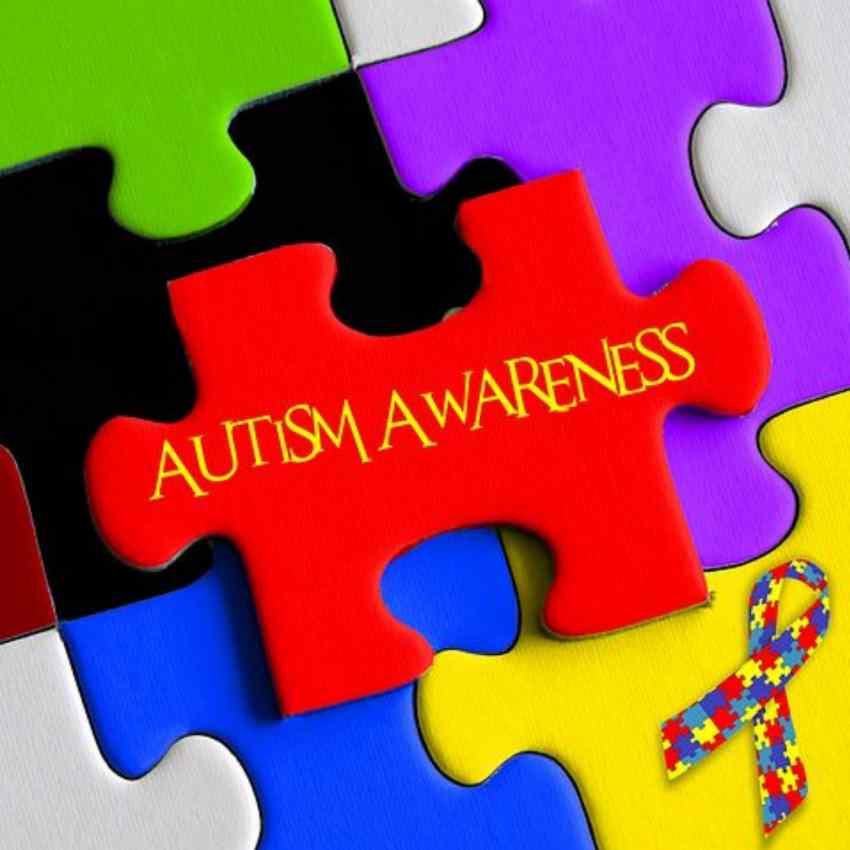April is Autism awareness month. LagosMums Talks had a chance to get an exclusive on the myths and facts of Autism with Monisola Olorunfemi, a Board Certified Behavior Analyst. I certainly learnt a lot and I am sure this insightful interview will give you valuable information as a parent, caregiver or concerned adult.
See text of the podcast interview below.
Hello everybody, welcome to this episode of LagosMums talks. Today we’ll be talking to Monisola Olorunfemi, a Board Certified Behavior Analyst. My name is Yetty Williams and at LagosMums, we love to talk about everything that affects family life and raising children.
Today, we are talking about Autism. April is Autism awareness month and there are so many challenges, myths and success stories. In fact, there’s a lot wrapped around it. Many times, not understanding what it means can cause a lot of confusion and I think that is one of the reasons we need to talk about it because the more we talk about it, the more we help a family somewhere to help their child. Ultimately, it’s about the child that has been diagnosed with being on the spectrum. The question now is “what is the spectrum”?
LM: We’re bringing you on because you’re an expert in this space and i know that you’ve helped a lot of mothers and families as well. Please Introduce yourself and tell us what you do.
MO: I’m glad to be here today. My name is Monisola Olorunfemi. I’m a Board Certified Behavior Analyst. I especially work with children with autism and other developmental challenges. I’m also the founder of Peachgrey Consulting; we provide a-list services for both group and individuals at home and in schools.
LM: Tell us in layman terms the meaning of Autism and what it means to be on the spectrum.
MO: Thank you for that. Autism is basically a neuro-developmental disorder that presents itself in early childhood. It is actually a condition that affects social communication, language and also behavioural presentation. Autism is a spectrum disorder, in other words, it affects each and every individual differently.
LM: Some of my research has shown that it is important to identify if a child is on the spectrum early. In addition, intervention at the right time can make all the difference.
Can you tell us a little bit about the signs and symptoms parents and all caregivers need to look out for?
MO: Thank you. Going back to the definition I gave; about the fact that Autism affects three domains, I will start by looking at all the deficits in these three domains. As a parent, caregiver or someone that comes in contact with a child, essentially, when we talk about social components of a child’s development, we have a situation where if a child is not doing the following things, they are red flags that there may be Autism. Red flags to say ” okay, I will go for further evaluation”.
In terms of social communication, lack of eye contact is a very big red flag. If a child is not maintaining eye contact and you’re trying to get his attention “look at me” and the child is not having any of that, it’s usually a sign that there’s something wrong.
lack of eye contact is a big red flag. Share on XLM: Culturally, if you’re looking at a parent or elder in the eye, you’re rude. How do you differentiate?
MO: (laughs) With children, if I ask that you look at me or I need to get your attention by calling your name, and there is no form of eye contact, across board it is usually a sign. Also, in a social component, the lack of emotion is another red flag. The child doesn’t respond to social cues, I.e, you’re smiling at the child and the child is not responding, this is a red flag.
Peer interactions – if that child doesn’t relate with other peers of his or her own age and the child prefers to be on their own, play on their own etc, that’s another red flag we should look out for.
Joint attention and communication – Usually when our children are between the ages of 1 and 2 years, they want you to share “oh, mummy see, take”. If a child is not engaging in those type of activities, under the social components, it is usually a sign that there is something wrong.
LM: At what age do you say autism manifests? There are some early on sets while some are a bit later?
MO: I always say each child develops at their own pace. You should be worried when it’s a situation where a child is not doing certain things. By age 2, ideally a child should be able to maintain eye contact, interact with peers, show emotion. If by age 2 all that isn’t happening, we need to find some form of intervention for the child; that is the social component aspect.
Now with the language and communication, essentially, most children on the spectrum have low communication or they have limited language in terms of their words or sentences. In some cases, if a child by age 2 is not talking or saying anything or the child just has a few words in his/her vocabulary, it is usually a sign.
Also, if a child by age 2 is not following through with simple instructions such as “put that book there” “stand up”, it’s a sign. In fact, some parents will tell you ” I think my child cannot hear, I’ll go for a hearing test”. They go for a hearing test and they are told that audiology tests came out fine. So what is going on? That child can hear. It is a sign that there is something wrong.

LM: So it’s not just a child being naughty?
MO: No, it’s not just a child being naughty. Those are things we have to watch out for in terms of their language and communication.
Also, in terms of their expressive language (you know we sometimes express ourselves without words) a child on the spectrum will not read social cues. They are very unaware of their social environment. In terms of behavioral presentation, we’re talking about their behaviorism being very restricted and repetitive in nature. So, a child on the spectrum might just like a particular activity and want to do it over and over again. For instance they just want to hit a ball on the table and they are doing it for a prolonged period of time, It’s a sign that there’s something wrong.
Also, they can be very restricted in their regimen. If you’re taking a particular road to school everyday and one day there is a blockage and you have to take a detour, that child can just have a full on melt down. They are so routine-oriented that if you try and change their routine they will have an issue with it. Also, they have what we call self-stimulatory behaviours.
We call it stimming. So if you have a child that is on the spectrum, the child doesn’t talk but makes some sort of noise over and over again or they rock back and forth. Some can even like to play with their saliva, it’s sensory for them. It’s their way of balancing the input that is coming in from the environment that their Brain is not wired to be able to cope with. If as a parent you notice any of these signs in a child by age 2, you need to seek help and diagnosis and make sure that the child receives the proper care.
LM: If a parent notices any of these and is concerned, what do they do next? Who do they go to? Is it their pediatrician? What is the actual step that the parent needs to take?
MO: If a parent notices any of these things that I’ve just mentioned, it’s best to seek the services of a developmental pediatrician, a neurologist or a psychiatrist as the case may be.
But, I’ll say that a developmental pediatrician is the best person being that they are children. The developmental pediatrician is in the practice to be able to diagnose what exactly is wrong with the child. The person will tell the parents what exactly they’re dealing with.
Then again, Autism might come alone as a condition. It might also come with some other co-morbids; it can come with ADHD, OCD, SPD etc. Those are other co-morbids. The developmental pediatrician tells you exactly what you’re dealing with so that when you’re given that diagnosis you will now seek the intervention of an applied behavioural analyst such as myself or you seek a speech therapist or occupational therapist as the case may be because you might need multiple professionals to be able to work on that particular child depending on what the deficits and diagnosis are. But it’s important for one to first seek for a diagnosis and then the intervention.
LM: Concerning the pediatrician you mentioned, the average parent usually goes to see a pediatrician between 0-2 years for several things ranging from jabs to immunization. Should a regular pediatrician know when they need to fly and refer that parent?
MO: Ideally, yes. We take our children to the pediatrician so it’s usually the first point of contact for a lot of children. The pediatrician then starts asking questions just to be sure that they’re not getting over their heads. You as a parent will have a history but the pediatrician will probably be seeing that child for the first time. After which the pediatrician now refers you to a professional that will take up the case.
LM: To summarise so far, there are some milestones that children need to be hitting between age 0 and 2. If parents notice certain things that you have discussed, they need to dig deeper. They either can get access to developmental pediatricians if not,their regular pediatrician will work as a first stop and they will then refer the parent to the right person.
So, we know what to look out for and we know what to do. When we get to the point of finding the right professional, what kind of background checks or systems are in place? What can parents do in Nigeria to be sure that the person that says they’re a professional to help a child on the spectrum is actually properly qualified?
MO: That’s a very interesting question. In Nigeria, the regulation for therapists and all that is not really set in place, it’s important for parents and caregivers ( I cannot stress this enough because Autism as a disorder hides a lot) you need somebody that actually knows what they do. For instance, I as a behavioural analyst, there is a world wide certification board that has an online platform where you can go to check the registry for certificants.
So if a parent questions someone’s professionalism they can go on the website to confirm. Also we have speech therapists and occupational therapists, they all have their own board where you can confirm if they are licensed or certified.
LM: How do we find this sites?
MO: it’s online. For instance, you go online and check. For the behavioural analyst, it’s www.bacb.com. You could also just put in your search engine “how do I vet this occupational therapist?” You’ll be given their license interpretation. So, if you tell me that you’re a certified speech and language pathologist, I then ask ” okay, please can I get a website where I can check and verify” they should be able to give it to you. If they cannot give it to you, please, you need to move on to the next person who can certify indeed that they are licensed and certified professionals.
LM: This is so important. My children are older now, I’m not sure I knew half of what you’re saying. If there was anything, I’m looking back and I’m thinking would I have been able to know that things didn’t quite match. What do I do? Who do I speak to? It also depends on the pediatrician you see. Some are either busy or they could have so many patients or they don’t have the time and the mum says ” but I noticed that my son is not yet tying his shoe laces” and they cut you off or don’t take you serious. If as a parent you don’t know that it’s important for you to continue to check these things, you just won’t know what to do.
MO: It’s really important. Even if you’re not directly involved but you happen to educate people, it’s important for them to ensure the credibility of that professional.
![]()
LM: There’s a mean debate on whether or not a child who is on the spectrum should go to a main stream school or a special needs school. What do you think?
MO: I would tread softly on this topic because we as a society have expectations of what our children should be able to do. It’s a very delicate balance. What I mean is that where a child falls on the spectrum actually determines if the child will be able to gain from being in a main stream environment; a regular school.
Let’s say the spectrum is on a scale of 1-10(1 meaning less severe and 10 meaning most severe), a child who is on the lower end of the spectrum won’t be able to do well in a classroom because essentially what will happen is that the child is just there but is not gaining anything from that environment, the child is not learning. The child might have all this self stimulatory behaviours; the child may be shouting, the light may be disturbing, all the chats and chaos of the classroom is not going to allow that child learn from the classroom.
What’s the purpose of the child being there? But when you have a child that is on the less severe side of the spectrum that is able to gain significantly from the classroom environment. By all means, but even if that child can cope in that environment, it has to be set for success. The school/the facilitator might need a support staff in that environment to ensure that the child is able to fit in. Until you can ascertain that all those parameters are going to be in place, there’s no point for that child to be in a main stream environment.
The main stream environment has it’s benefits, socialization is part of being in the normal world, so being that if you want a child to function in the normal world, why don’t you put the child in a normal school? But you have to understand that a child has needs that a regular school might not know.
Even when you say you want the child in a main stream environment, you have to be very particular about the fact that the main stream school is one that understands autism as a condition, has educated their staff and will also allow a support staff to come in and help the child and they’re able to work pari-pasu with the parents. When everybody is on the same team, then you’ll get success out of it.
LM: Another thing I’ll like to mention is that we have much more cases coming up now. Is it because we’re able to diagnose it? Is it that we’re better able to identity children on the spectrum? Or Is it that we’re more open?
There’s a lot of back and forth about it. Why do you think there’s more increase in the cases we’re hearing about. And we’re seeing it more, I can count how many families I know who have at least one child or a niece or a cousin who may be on the spectrum.
MO: Like you said, there’s an ongoing debate. In fact I was watching a documentary in Norway the other day and it was so heated that a woman says we’re being over diagnosed. When we were young why weren’t we seeing more autistic kids. In reality, I don’t think that is the case.
LM: You don’t think that is the case. Why?
MO: Yes, our lifestyle has changed since I grew up. What we eat has changed, the environment – there’s global warming, there’s pollution and we have a situation where we are not as active as our mothers were. They went to the farm and ate fresh. Most of our grandmother’s didn’t have refrigerators, so you eat, you cook and that is it. I feel like it’s a combination of many factors. We have the environmental factor, we have the genetic components. It’s a combination of all these things
LM: By genetic components you mean our genes are being modified by the kind of things we’re eating?
MO: Exactly. When you put all this factors together; it takes a man and a woman coming together to make a child. The lifestyle of our men too are contributing factors and all this things are contributing to Autism.
LM: I read somewhere that putting laptops on your lap is very dangerous. It causes infertility. Especially for men – it’s actually affecting reproductive organs. Yet most people put it on their laps because it’s called a laptop.
MO: Like I said, it’s still a mystery because there are so many factors. What causes autism? We still don’t know.
LM: So, things people should do even before they get married, while they’re still single, watch your lifestyle, watch what you eat?
MO: And then the God compliment, you have to pray.
LM: One more question on domestic staff. I’ve found that a lot of them can be quite harsh, even with regular children. And I’ve found that, I see this a lot, where a mother has a child that is on the spectrum and the nanny is so horrible, you’re yanking the kid, screaming, using horrible words, and then you just wonder what can a mum or dad who has a child on the spectrum do?
What kind of domestic staff should they be hiring? What process should they go through before they bring someone into their home to help them with a child who needs special care?
MO: Thank you. When a parent wants to employ a staff, I think it starts from the screening process. Then, the countenance of the kind of staff is key because anybody that will work with a child that has special needs has to have a lot of patience. You can watch the body language, you can even put the person on a sort of probation period where you have a camera just to see the persons temperament. To say ” is this someone that can fit into my family?”.
Also, you really can’t give what you don’t have. I always advise parents, they need to train that staff. Consult with a behavioural analyst, consult with a professional to train the domestic staff. Their consultation fees are very affordable. Because once you understand what is happening, it’s easier. You show a lot of compassion and then when things happen you understand and remember the training.
The person even sees themselves as a stake holder in that child’s life and when the child starts thriving and complying, you see the pride. They feel like “we are part of that and we achieved this together”. So it’s important to invest in your staff. And please by all means, with regular children, treat them the way you will treat your own children, show them the kind of care and love you’d want. It’s a ripple effect, if you treat them poorly, they’ll transfer aggression to another child that doesn’t have a say in the matter.
So I think it boils down to all the factors, show careful love, show compassion, be very considerate, train your staff.

LM: Wow. Thank you so much. This has been educative. I remember the first time I met you was last year at a LagosMums event. You had a session on milestones and we got a lot of feedback with mums saying “I saw a lot of this signs, Thank God I prayed it away.”
So I ultimately believe that prayer is key. It’s like when you have a headache and the doctor prescribes panadol, you take the panadol and also pray the headache away. So, you do what you have to do and also pray. I also believe that as parents, we are gardeners. We are meant to nurture children and every child is unique in their own way.
I’d like you to give us a parting comment. What will you say to encourage parents who are in that journey, who maybe have just found out. What do they do to not feel despair or feel alone? Can you encourage somebody today?
MO: Definitely, it’s my pleasure. Autism is not a life sentence.
As a parent who has just gotten the diagnosis or is on the journey, take the time to grieve and go through the process because it is human to do so. Grieve, Cry, do what you have to do then set that aside, roll up your sleeve, put yourself together and fight for your child. Because with the right kind of intervention, there is hope.
It all depends on the approach. It all depends on the quality of the intervention and the timeliness of the intervention. Please do not adopt the wait and see approach. It’s better for you to see a professional that says ” oh, don’t worry it’s just one of those things” than for you to say it will go away. It’s better for you to get a diagnosis so that in your mind you’ll know you did the needful than for the best years to go by and there’s regret later.
LM: So how can they contact you to keep in touch?
MO: You can reach me by phone – 08135993311
Or you can send me an e-mail – peachgreyconsulting@gmail.com
LM: Thank you so much Monisola for coming on the show. You can also reach out to us @LagosMums on Instagram, Facebook, twitter and send an email to contactus@lagosmums.com. Be sure to visit LagosMums.com for more articles and content on parenting and family life.



